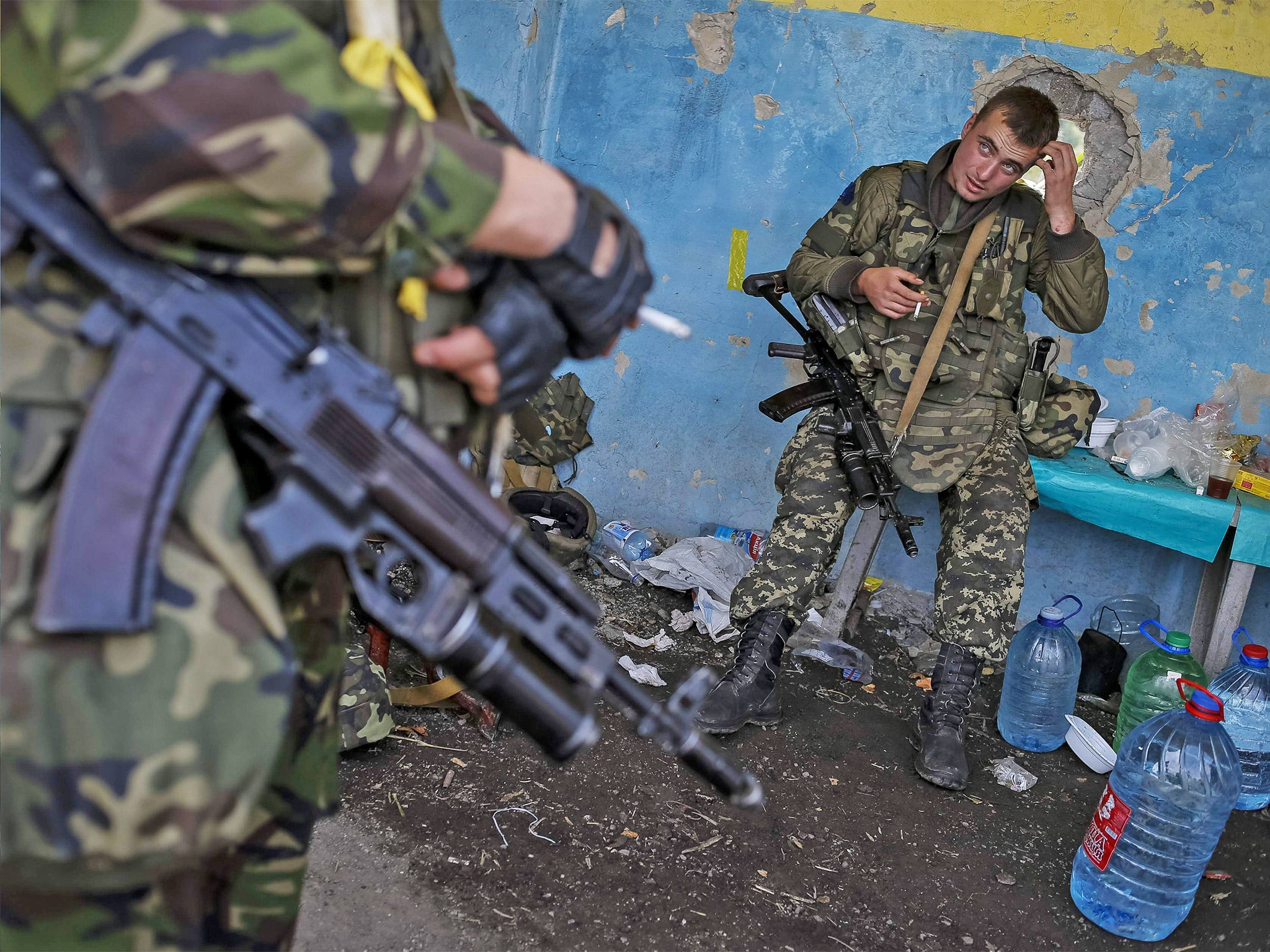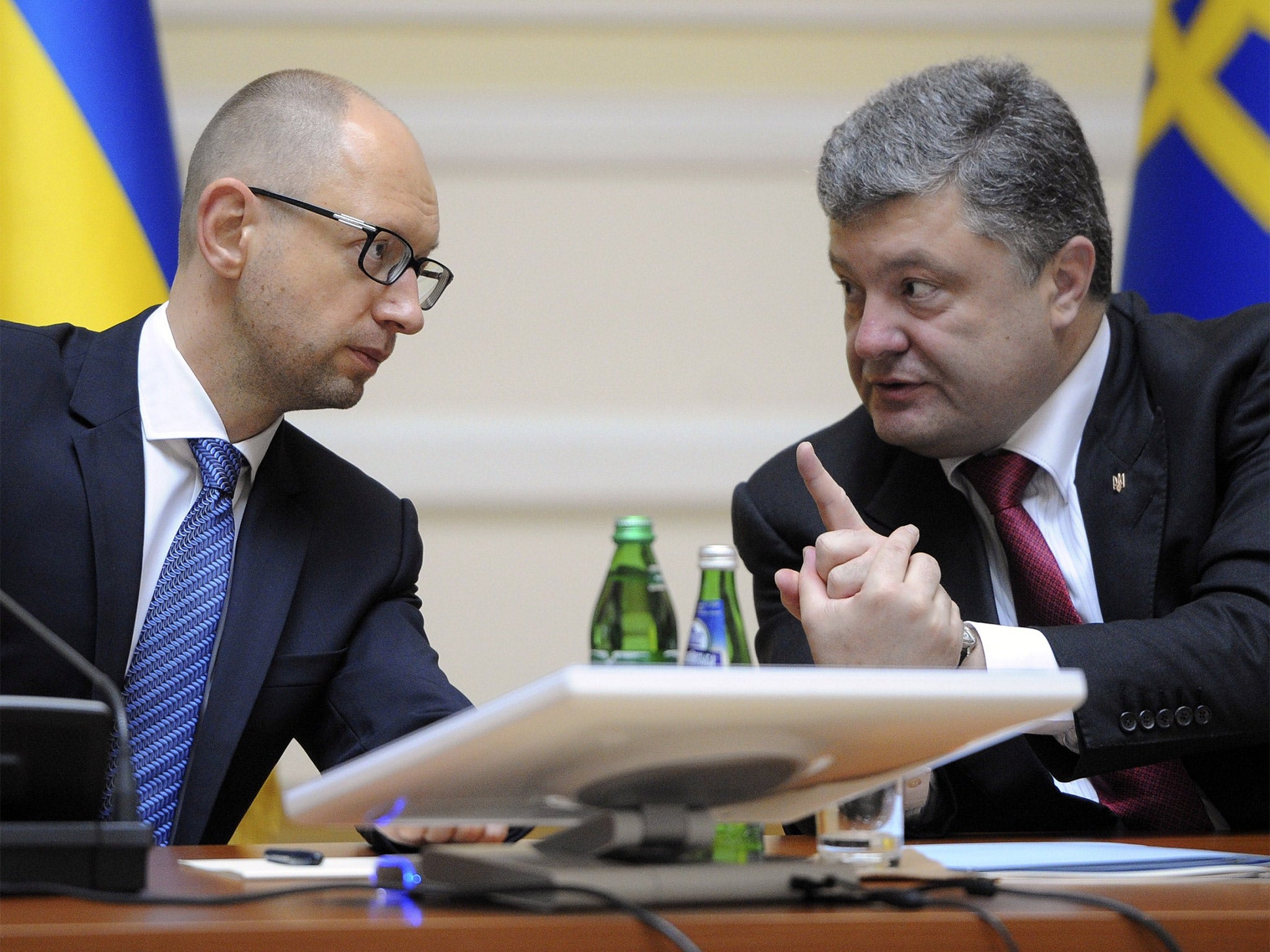Ukraine offers concessions to pro-Russian separatists
President says regions under rebel control would get special autonomy

Your support helps us to tell the story
This election is still a dead heat, according to most polls. In a fight with such wafer-thin margins, we need reporters on the ground talking to the people Trump and Harris are courting. Your support allows us to keep sending journalists to the story.
The Independent is trusted by 27 million Americans from across the entire political spectrum every month. Unlike many other quality news outlets, we choose not to lock you out of our reporting and analysis with paywalls. But quality journalism must still be paid for.
Help us keep bring these critical stories to light. Your support makes all the difference.
Ukraine’s President says Russia has removed the bulk of its forces from his country, raising hopes for a peace drive now underway after five months of conflict in which more than 2,600 people have been killed. He has offered an olive branch to pro-Russian separatists, saying regions under rebel control would get special autonomy.
President Petro Poroshenko told a televised cabinet meeting on Wednesday that Ukraine would remain a sovereign, united country under the terms of a peace roadmap approved last Friday. He added that “70 per cent” of Russian troops had moved back across the border. “This further strengthens our hope that the peace initiatives have good prospects,” he said.
Moscow denies sending troops into eastern Ukraine to support pro-Russian rebels battling Ukrainian forces, despite what Kiev and its Western allies say is overwhelming evidence to the contrary. Moscow also denies arming the separatists.
Mr Poroshenko said he would propose a bill next week offering “special status” to parts of the Donetsk and Luhansk regions of eastern Ukraine they now control.
But he was adamant in rejecting the separatists’ demands for full independence for their regions and the kind of radical “federalisation” favoured by Russia.
“The Minsk protocol envisages the restoration and preservation of Ukrainian sovereignty on all the territory of the Donbass [in eastern Ukraine], including that controlled by the fighters,” Mr Poroshenko said. However, he said the ceasefire was not proving easy to maintain because “terrorists” were constantly trying to provoke Kiev’s forces.
Ukraine’s military recorded at least six violations of the ceasefire overnight and into Wednesday morning but said there were no casualties. Mr Poroshenko said Ukraine was regrouping its forces in eastern Ukraine, not in preparation for a new offensive against the rebels, as the separatists themselves have suggested, but in order to defend territory from possible attack.
City authorities in Mariupol, a key front-line city, announced tough new security measures yesterday including a night-time curfew to help control rebel movements.
Russian President Vladimir Putin accused Nato of using the Ukraine crisis to “resuscitate itself”. At a summit last week in Wales, Nato pledged support for non-member Ukraine in its efforts to tackle the separatist rebellion and announced plans to beef up the defence of alliance members in eastern Europe, including the Baltic republics.
Mr Putin also signed a decree taking direct charge of a commission that oversees Russia’s defence industry as Moscow tries to reduce reliance on Western equipment.
Mr Putin said Russia must maintain its nuclear deterrent because of what he said were a growing number of possible security threats. Shortly before he spoke, Russia carried out a successful test of its new submarine-launched Bulava intercontinental missile, which can carry a nuclear warhead.

He said Russia must ensure it develops high-precision weapons in the next few years but added: “Someone might want to start a new arms race. We are not going to take part in that, of course.” “
The EU and US have imposed economic sanctions against Russia over its role in Ukraine, prompting Moscow to retaliate by banning most Western food imports.
The EU has prepared another wave of sanctions targeting Russia’s banking and energy sectors but has held off implementing them to see whether the ceasefire holds.
In Prague, the Organisation for Security and Cooperation in Europe, which is monitoring the ceasefire, said it would be reasonable to allow more time for the peace process.
Mr Poroshenko signed a law yesterday allowing Ukraine to impose its own sanctions against Russian firms and individuals deemed to be backing the separatists in eastern Ukraine.
The President has also been invited to address a joint meeting of the US Congress, an offer intended to underscore Washington’s commitment to his country.
REUTERS
Subscribe to Independent Premium to bookmark this article
Want to bookmark your favourite articles and stories to read or reference later? Start your Independent Premium subscription today.
Join our commenting forum
Join thought-provoking conversations, follow other Independent readers and see their replies
Comments